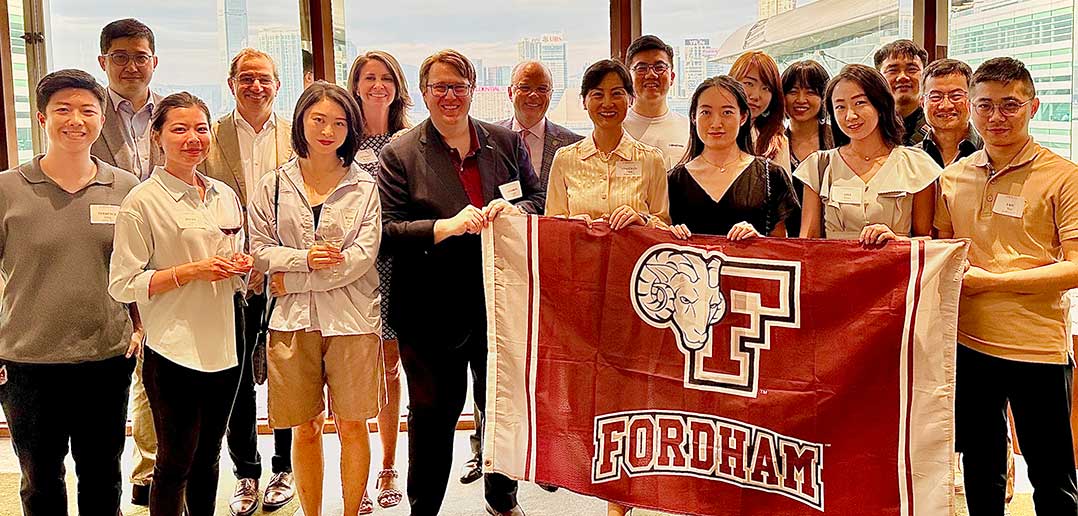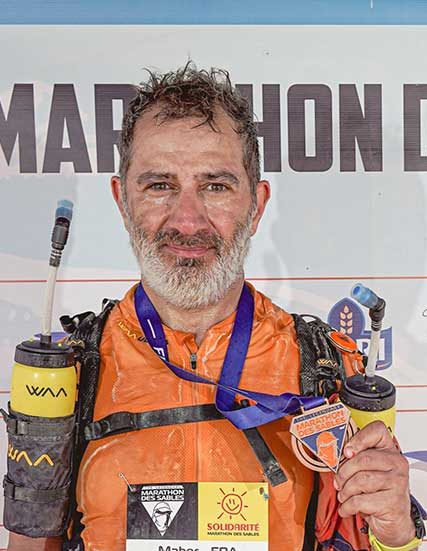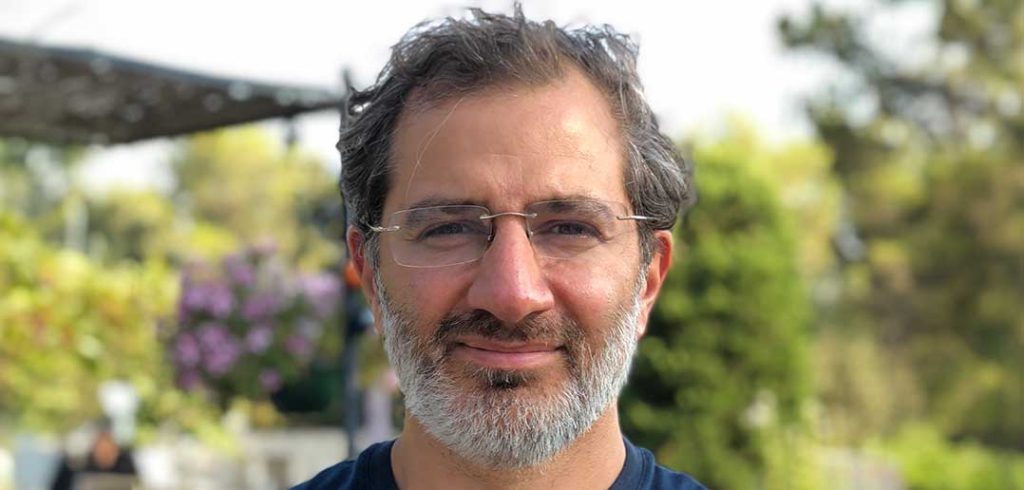Now, the 1992 Fordham College at Rose Hill graduate is doing his own convincing. In October, he sponsored a reception for Fordham graduates, friends, and family in Hong Kong, where he’s lived since a “short-term” assignment sent him to the country in 1996.
It wasn’t the first time he’d picked up stakes and moved across the world. After El-Omari’s family fled Lebanon in 1974, when he was just 4 years old, they moved to New York City. They lived on York Avenue in Manhattan, and he attended the nearby French school, Lycée François de New York, until 1979, when they moved to, well, France.
There, he attended Lycée Gerson, a Jesuit high school, until 1989, when, after “dreaming of going back to the U.S.,” he left to study math and economics at Fordham. His cousins had told him about finding a second home at the University, about how he’d learn to think for himself and be prepared to go out into the world to make an impact—and so he has.
After graduating, he was hired by JPMorgan Chase, where he hopped around various divisions, including telecommunications and mergers and acquisitions, trying to find the “right” one for him. Luckily, “the bank was really good at helping encourage, and constantly move, people to find their strength,” he said.

His strength, it turned out, was helping launch and lead the company’s consumer and retail group in Asia. In 2021, after more than 30 years with JPMorgan, El-Omari left the bank to co-found 6E Capital, a venture capital and private equity fund, with his wife.
“I felt like I wasn’t really growing or learning or doing anything different, and so I figured, ‘Why don’t I start something new?’” he said. “The idea was to give back to people what I learned, and so I work now with startup companies or smaller companies and leverage my network and empower the companies to use my contacts to open doors for them to get business.”
There’s another way he wants to give back: by championing the value of education and telling people about his own experiences as a student in New York.
How best to support young people in and beyond Hong Kong and connect them with opportunities—especially the opportunity to receive an “American education” as he did—is something that’s always on his mind as a father of four, but he wants to help all students.
“I think if we have the opportunity and the privilege of going and studying in the U.S., it’s something that I always advocate, particularly at the university level,” El-Omari said. “And look, to me, New York is really the best place, as a foreign student, to actually go and have an education.”
Fordham Five

What are you most passionate about?
Running: It keeps testing both my physical and mental limits. I ran the New York City Marathon last year. It’s my favorite marathon in the whole world. I think I’ve run nine marathons and one ultramarathon.
What’s the best piece of advice you’ve ever received?
“If you’re going through hell, keep going.”
—Winston Churchill
I ran the Marathon des Sables (MDS). It’s a 250km, seven-day, self-survival race in the Sahara desert. It was an excruciating physical and mental run. I was completely drained, but I kept going. It’s so difficult to persist when everything is telling you to stop. I still don’t know why I put myself through this ordeal. (Maybe it was part of the mid-life crisis process.) It was hell, and Churchill stuck in my mind. I bonded so much with my tent mates, and they helped me go through this struggle.
What’s your favorite place in New York City? In the world?
I love the New York City Subway because it’s a representation of life. You see everything in it. It’s really a tapestry of life.
In the world, I like running across Hong Kong island. It’s breathtaking, and it’s very personal. I find it extraordinary to have urban life so closely intertwined with nature. It’s like having Manhattan and a jungle right next to each other. One minute, you’re running in the city, and a block later, you’re completely submerged in nature. I love that.
Name a book that has had a lasting influence on you.
I don’t know if you’ve read some of the passages of The Prophet by Khalil Gibran. He basically takes different themes in your life. There’s one about children, about parents and their children, that’s true: You don’t own your children. You’re just a vessel for them and a platform for them to grow. But you cannot control who they are, their thoughts, where they want to go. The only thing you can do is just kind of guide them as much as you can. But it’s their life.
Who is the Fordham grad or professor you admire most?
My cousin, Wassim Habre, GABELLI ‘84. My cousin was everything I wanted to be. He was like a big brother to me. He’s the one that encouraged me to go to the USA; he’s the one who [helped get]me into Fordham. He was charismatic and a natural leader. He was so successful in everything he did—generous, gifted, and loving. He accomplished so much personally and professionally. He started his company at the young age of 24 and sadly passed away at the young age of 26. He’s been in my heart, thoughts, and prayers ever since.

